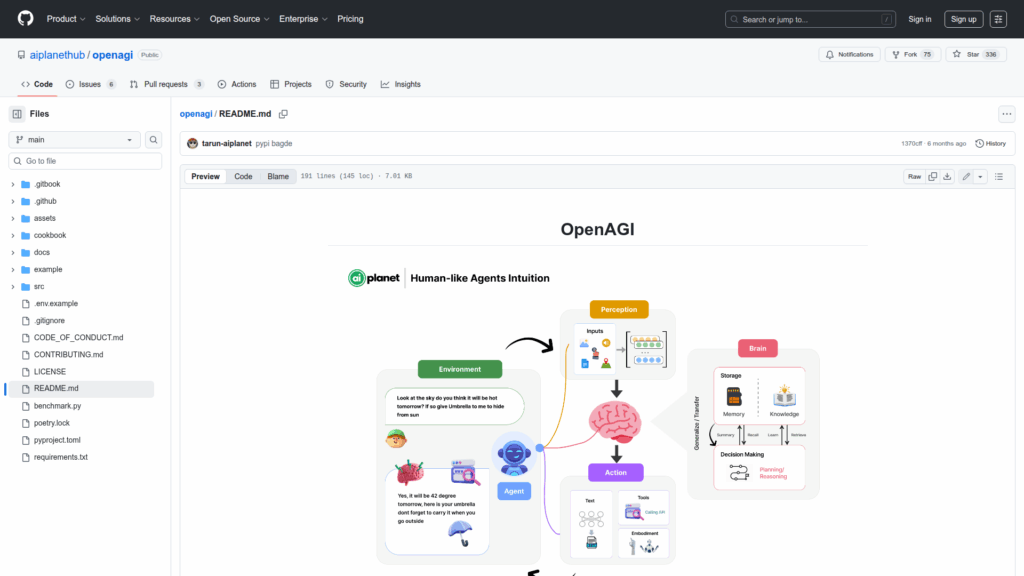openagi
Basic Information
OpenAGI is a developer-focused framework designed to make the development of autonomous, human-like agents accessible. It provides the building blocks and orchestration needed to construct multi-agent systems where distinct Workers perform actions and an Admin coordinates planning and execution. The README shows example usage for both manual and autonomous execution, illustrating a Trip Planner agent and a Sports Agent that run with LLM backends. The project integrates LLM adapters such as OpenAIModel and GeminiModel, supports action plugins like DuckDuckGoSearch and TavilyWebSearchQA, and includes a TaskPlanner for task decomposition. It also offers a Long Term Memory module so agents can recall past interactions. The project is distributed as a pip package and includes documentation, community channels, and contribution guidelines for developers to extend and deploy open agents.








